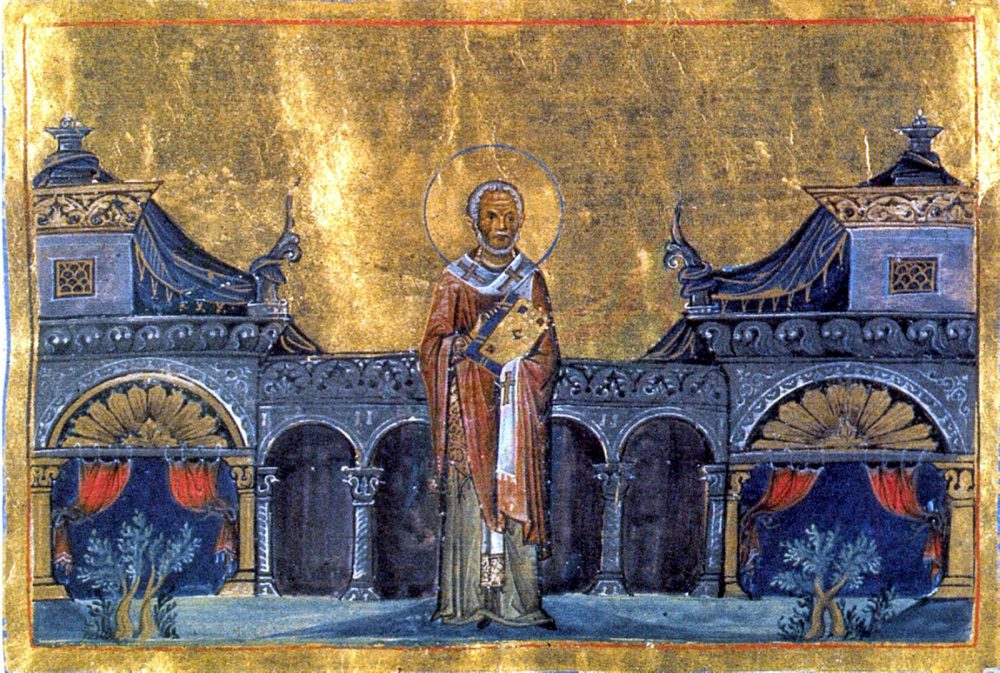Rev. José Mario O. Mandía
jmom.honlam.org
SCHOOL OF CAESAREA MARITIMA. Origen left Alexandria (Egypt) in 231 AD, when Bishop Demetrius became unfriendly and settled instead in Caesarea Maritima (Palestine). It was in Caesarea where he founded a school. He and the presbyter Pamphilus built the most extensive ecclesiastical library of that time. The library contained more than 30,000 manuscripts. In the scriptorium (writing room) attached to the library, Origen oversaw the copying of the Scriptures.
Scholars who would later be declared Fathers of the Church came to study in the School of Caesarea: Jerome, Gregory Thaumaturgus (the Wonder-worker), Eusebius of Caesarea together with the Cappadocians (Basil the Great, Gregory of Nyssa and Gregory of Nazianzus).
SCHOOL OF ANTIOCH. Some scholars felt that Origen overemphasized the allegorical meaning of Sacred Scripture, so Lucian of Samosata founded another school, this time in Antioch (Syria), to dwell more on the literal meaning of the text.
While the school of Caesarea was inspired by Plato and thus was idealistic and speculative, the school of Antioch was influenced by Aristotle and thus was realistic and practical.
The scholars at Caesarea worked on the types or figures (cf. Catechism of the Catholic Church, no 117 and 1094) of Christ in Scripture. Thus, for them, there was a lot of mystery in Scripture that had to be unearthed. The scholars at Antioch, on the other hand, did not believe that every statement was a prefiguring of Christ.
The School of Caesarea also emphasized the union of the human and divine natures in Christ, while the School of Antioch stressed the distinction between the human and divine natures. The School of Antioch would later influence the thought of Nestorius, who propagated the error that there are two persons in Christ: one human, and another divine.
GREGORY THE WONDER-WORKER. As mentioned earlier, one of the scholars who came to listen to Origen in his school at Caesarea was Gregory Thaumaturgus (‘Wonder-worker’). Gregory was born around the year 213 to a high-ranking pagan family. “He had a brother Athenodorus, and, on the advice of one of their tutors, the young men were anxious to study law at the law-school of Beirut, then one of the four of five famous schools in the Hellenic world. At this time, also, their brother-in-law was appointed assessor to the Roman Governor of Palestine; the youths had therefore an occasion to act as an escort to their sister as far as Caesarea in Palestine. On arrival in that town, they learned that the celebrated scholar Origen, head of the catechetical school of Alexandria, resided there. Curiosity led them to hear and converse with the master, and his irresistible charm did the rest. Soon both youths forgot all about Beirut and Roman law, and gave themselves up to the great Christian teacher, who gradually won them over to Christianity” (“St. Gregory of Neocaesarea,” Catholic Encyclopedia. New Advent. https://www.newadvent.org/cathen/07015a.htm).
When they were about to depart from Caesarea, Gregory composed a Farewell Address which talks about Origen and his method of teaching.
Gregory became the bishop of his native city Neocaesaria (Pontus). He preached the Gospel everywhere to the point that when he died, most of the people in the province of Pontus had become Christian. It is said that when he started out, there were only seventeen Christians in Caesarea. At the end of his life, there were only seventeen pagans. We have no details of the miracles or wonders that he did, but the results can give us an idea how much he must have done.
The Cappadocian Fathers mentioned earlier regarded St Gregory Thaumaturgus as the founder of the Church of Cappadocia.


 Follow
Follow


